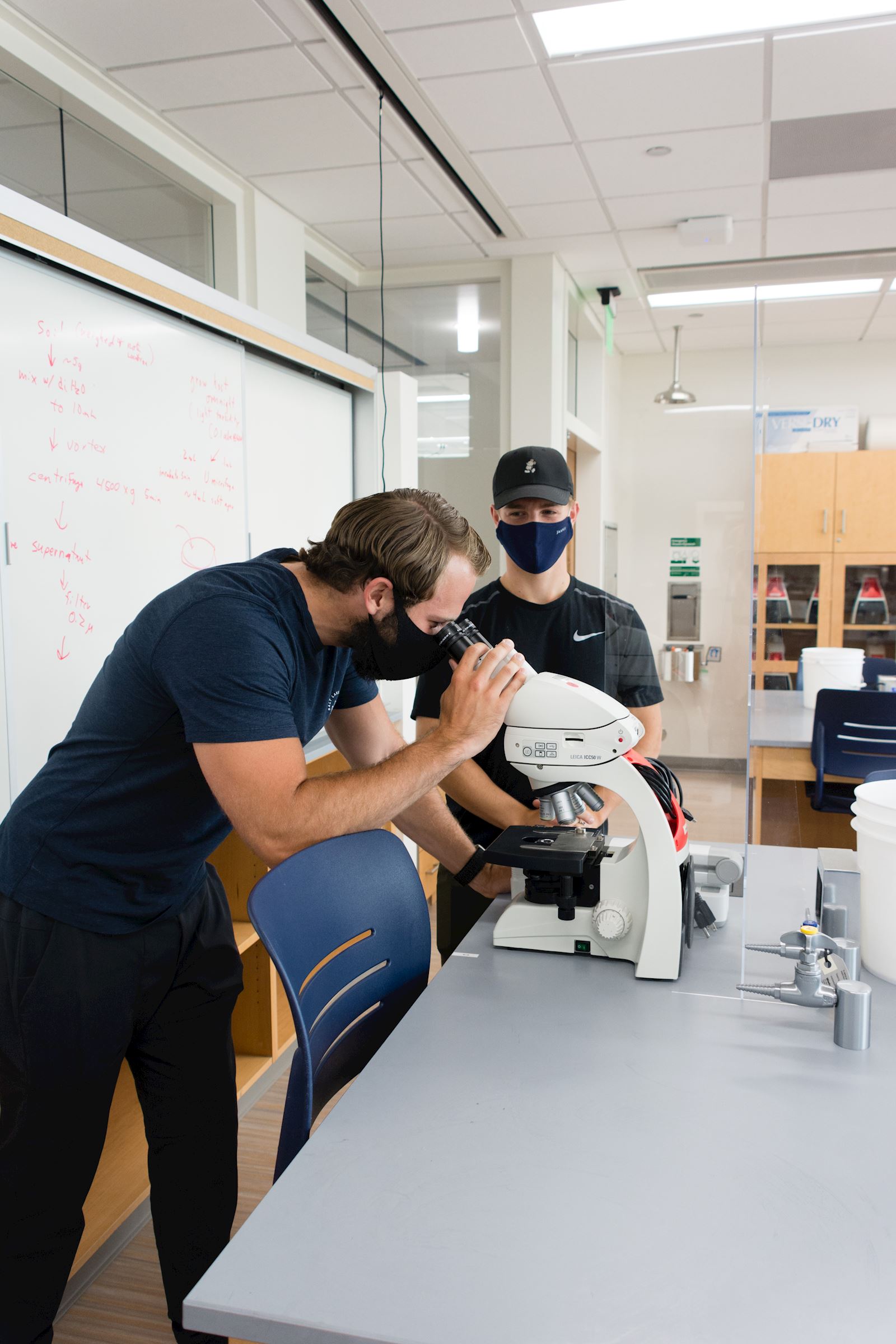Finding Success Online
September 2, 2020
by Katelyn Shaw, student intern
Hyrum Packard, Riley Nichols, and Dr. Craig Oberg discuss their challenges and successes with research.

Two years ago, Riley Nichols and Hyrum Packard started a research project with Dr. Craig Oberg swabbing gym equipment in an effort to find if it could be a source of microbial contamination. After a semester of swabbing the equipment, their findings showed there was no bacteria, which meant that they had to find a new approach. Because of preliminary research associating bacteria with automatic hand dryers, Dr. Oberg suggested they switch to swabbing those. Their research showed that hand dryers can be a source of microbial contamination, and the group was chosen to present their findings at the American Society for Microbiology (ASM) annual meeting and at Weber State’s Undergraduate Research Symposium.
As they began swabbing the hand dryers, they ran into some challenges. Their first approach was to swab their hands to see if the bacteria transferred from the hand dryers, but it proved to be less productive than they would have liked. They would swab their hands after they air dried them, dried them with a paper towel, or dried them with the hand dryer and repeated this process, switching the order each time. No matter what order they completed the tests, the last was always the cleanest, and the first was always the dirtiest. They believed this was because they were washing their hands multiple times, so after washing them three or more times, they were always cleaner. Once again they had to find a new approach, so they decided to sample directly in the dryer to look for microbial contaminants.
After finding out many bacteria were inside the dryers, it was time to find out what these bacteria were. Sadly, COVID-19 had other plans and the research came to a halt as they had to work from home and could not access the necessary lab equipment. Nichols and Packard still hope to finish this phase of their research during the 2020 fall semester.
Nonetheless, Dr. Oberg submitted their work for acceptance to the national ASM meeting before the COVID-19 pandemic impacted their research. The group had high hopes of being approved because of Dr. Oberg’s prior successes, and they were selected to present at the convention for ASM, but the event was canceled due to COVID-19. Luckily, the group was able to present their findings for ASM Microbe Online and see their research published as well.
Although this was frustrating because they could not have the full experience, they were able to reach more people because anyone could log on and see their research, not just those who would have been at the event. The research was also discussed online at the Weber State Undergraduate Research Symposium, as well as on Facebook.
Both Nichols and Packard, agreed that there is more to the research process than you think going into it. They both thought that it would be a simple project that they could finish quickly but found that was not the case. The eight hours of research a week they had signed up for turned into also spending weekends in the lab. They were constantly using different methods to determine their results and make their project better. Although it was a lot of work, they say it is worth it because it opens your mind to thinking rather than your professor telling you what to do.
After signing up for research, they thought Dr. Oberg would have a project set up for them, but he wanted them to choose their own project. He would help them and guide them along the way, but they needed to come up with a testing plan on their own. The two praised Dr. Oberg for this because they were able to learn more, and had to rely on themselves.
“Get involved in the research,” Packard said when asked for advice for other students, “In the science program, there are so many students that are pre-professional that need research, and that’s one of the super cool things that Weber State does, is to have undergraduate students participating in the research.”
He also suggests telling professors about your interest in research, particularly if you enjoy their class. Nichols recommends getting started on your research hours early in your college career so you do not have to rush later. But both were happy to share their experience and findings with others, even if they did have to spend a lot of time in bathrooms.